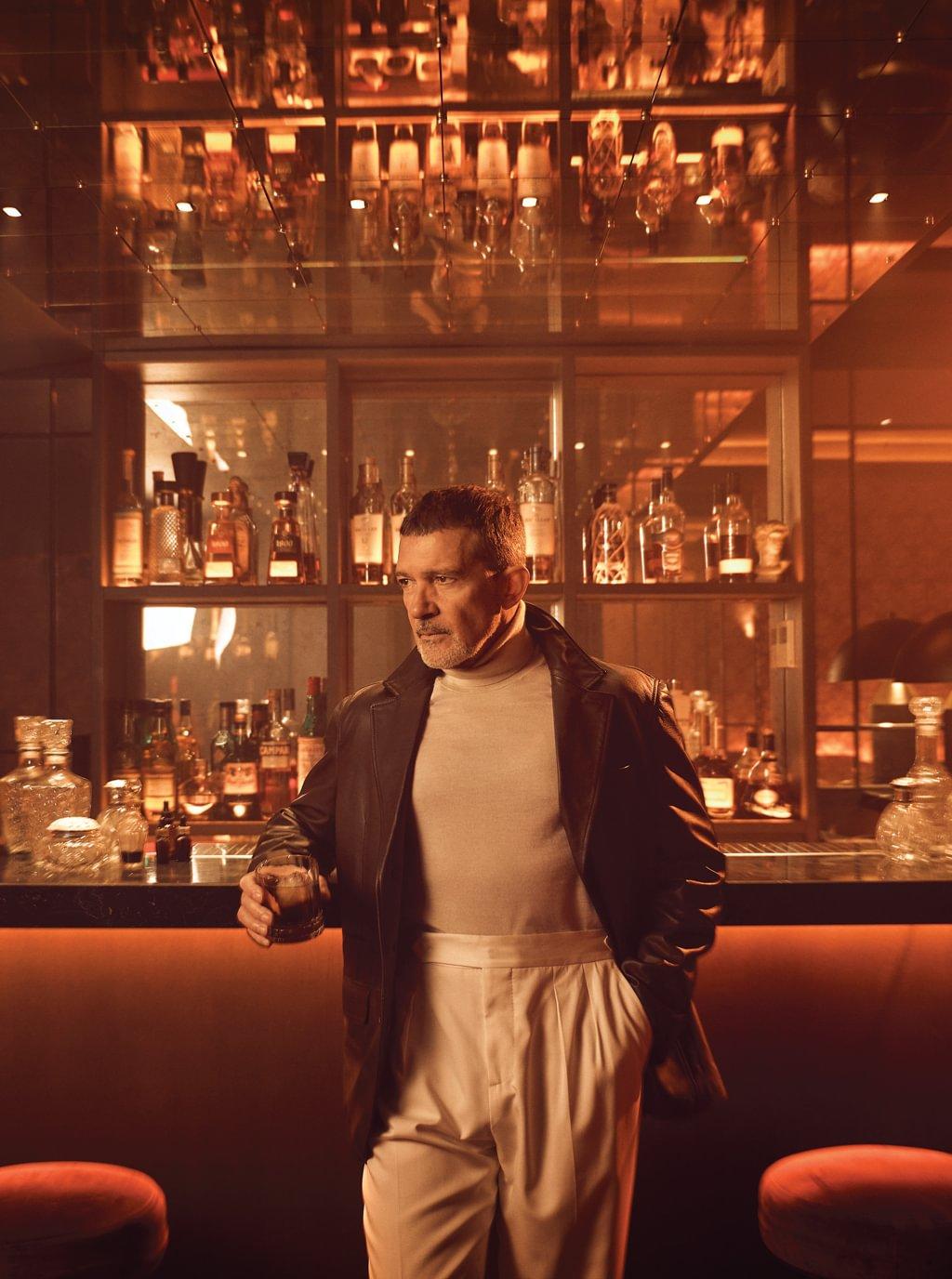
Antonio wears a cashmere loose-fit jacket, crew-neck sweater and trousers, Giorgio Armani; watch, Tag Heuer Monaco.

Leather blazer and pleated trousers, Brunello Cucinelli; roll-neck sweater, Dunhill.
During a break from the photoshoot whose results you can see on these pages, Antonio Banderas has what bar-room philosophers call ‘a moment’. Pacing slowly, gazing up at the lighting rig in the Teatro del Soho CaixaBank in Málaga, unaware that anyone is listening, he lets out a lengthy sigh. “Sixty-four… Fuuuck.”
One of The Rake’s team has just mentioned to him that the white open-neck shirt he’s wearing is similar to the one he wore in the 1995 neo-western action flick Desperado. It transpires in the ensuing conversation — to the bafflement of all present — that it’s now almost three decades since Banderas’s smouldering, gunslinging drug lord ‘El Mariachi’ prompted feelings of inadequacy in young men on first dates in cinemas all over the world.
Banderas is not alone, today, in feeling like the second half of his life has whizzed by at an uncanny speed. Can it really be more than three decades since he was first placed on the radar of Hollywood audiences, as Tom Hanks’s partner in Jonathan Demme’s Philadelphia? Two decades since the Shrek franchise — in which, as the voice of Puss in Boots, he inverted the bad guy/foreign accent convention — shook up the animated movie market? And one decade since Automata and the third Expendables instalment?
“When I had my heart attack, those things living within me that were not important practically disappeared.”
The last three-quarters or so of Banderas’s career may seem to play merry havoc with the space-time continuum, but he has wilfully slowed things down since the day in 2017 when, while exercising, he began suffering chest pains and was rushed to hospital, where he underwent surgery to have three stents implanted in his coronary arteries. The scare induced the most important epiphany of his life: one without which he and The Rake’s team would not be congregating today in this performing arts hub a stone’s throw from the waterfront in Banderas’s native city.
“When I had my heart attack, those things that were living within me that were not important practically disappeared,” he says, reclined in a third-row seat of the theatre, the shoot complete. “Only the things that are really, really, really important stayed. That’s why I made my decision to come back to Málaga and buy a theatre. I discovered at that time that happiness, and maybe my own success, was based on doing what I wanted to do, in the way that I wanted to do it, with the people I wanted to do it with. Many people say to






